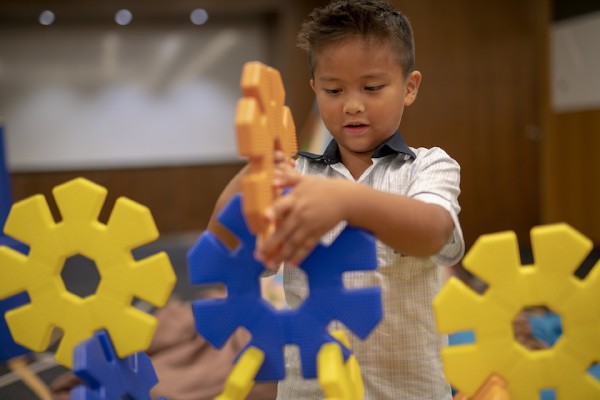Child-led learning is a fundamental aspect of Reggio Emilia-inspired education, where children are encouraged to explore and discover at their own pace. This approach values the interests and passions of each child, allowing them to take the lead in their learning journey. By following the child’s natural curiosity, educators can create a more engaging and meaningful learning experience that fosters creativity and critical thinking skills.
Project-based curriculum is another key feature of Reggio Emilia-inspired education. Rather than focusing on traditional subjects in isolation, projects allow children to delve deep into topics that interest them. These projects often integrate various disciplines, encouraging cross-curricular connections and a holistic understanding of the subject matter. Through project-based learning, children develop research skills, problem-solving abilities, and collaboration with peers.
Documentation of children’s learning plays a crucial role in the Reggio Emilia approach. Educators use various forms of documentation such as photos, videos, observations, and reflections to track and analyze children’s progress and development over time. This documentation not only informs teaching practices but also serves as a valuable tool for communication with parents about their child’s growth and achievements.
In Reggio-inspired environments, the physical space is considered the third teacher. Classrooms are thoughtfully designed to promote exploration, creativity, and collaboration among children. Natural materials like wood, plants, light-filled spaces, mirrors are often incorporated to create an inviting atmosphere that stimulates curiosity and imagination.
Parent involvement is highly valued in Reggio Emilia-inspired schools. Parents are seen as partners in their child’s education journey rather than mere spectators. They are encouraged to actively participate in classroom activities, share insights about their child’s interests at home or engage in collaborative projects with educators.
The atelier (art studio) plays a central role in Reggio Emilia-inspired schools where art exploration is viewed as a vital form of expression for children. Through diverse art mediums like paintbrushes; clay; found objects; collages; wire sculpture; photography etc., students can communicate thoughts emotions ideas visually verbally non-verbally etc..
Loose parts play refers to open-ended materials like blocks sticks fabric shells rocks buttons etc., without prescribed outcomes or instructions promoting imaginative play experimentation discovery risk-taking problem-solving cooperation conflict resolution negotiation etc…
Emergent curriculum responds organically to student interests developmental stages cultural backgrounds life experiences curiosities questions needs preferences challenges inquiries provocations opportunities etc., guiding teaching-learning-assessment practices individually collectively responsively reflectively dynamically intentionally ethically compassionately collaboratively constructively creatively diversely holistically inclusively sustainably respectfully equitably justly transparently accountably…
Reggio-inspire educators co-create authentic relationships build trust cultivate empathy model mentor facilitate guide support inquire provoke listen observe document assess reflect adapt collaborate partner network community stakeholders families policy-makers agencies organizations businesses institutions researchers artists advocates activists practitioners scholars leaders volunteers funders media influencers citizens publics globally locally regionally nationally internationally universally interculturally transculturally multiculturally…

Leave a comment